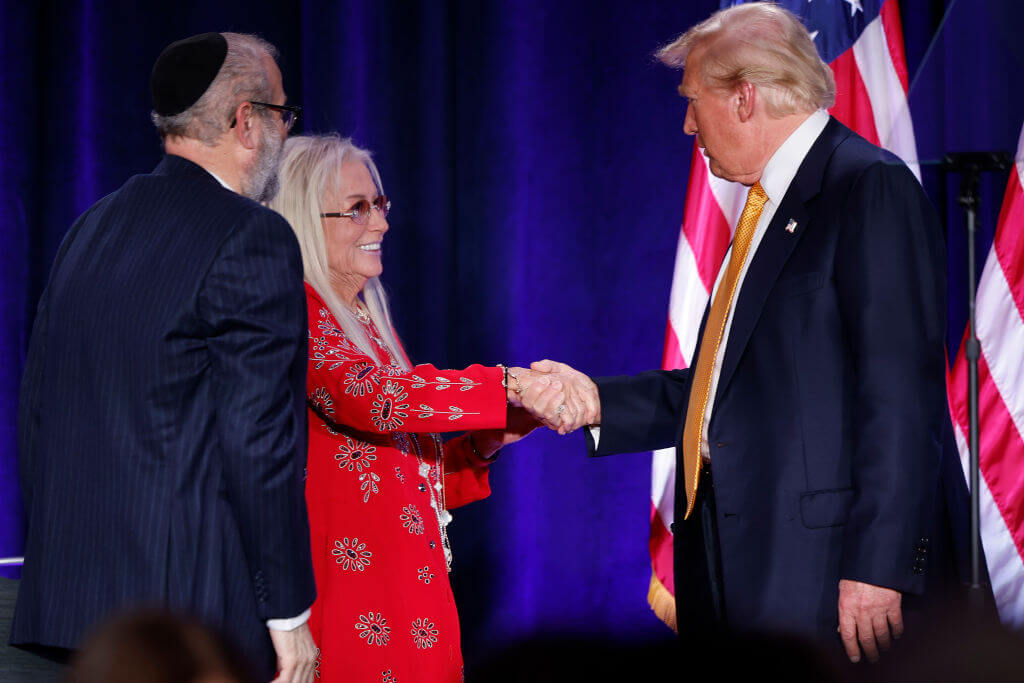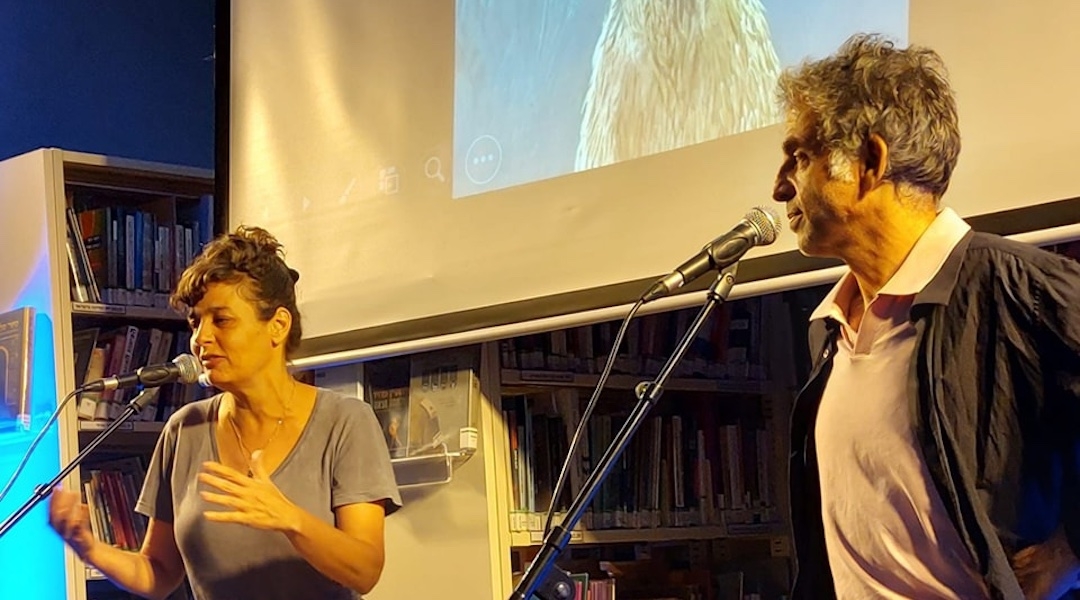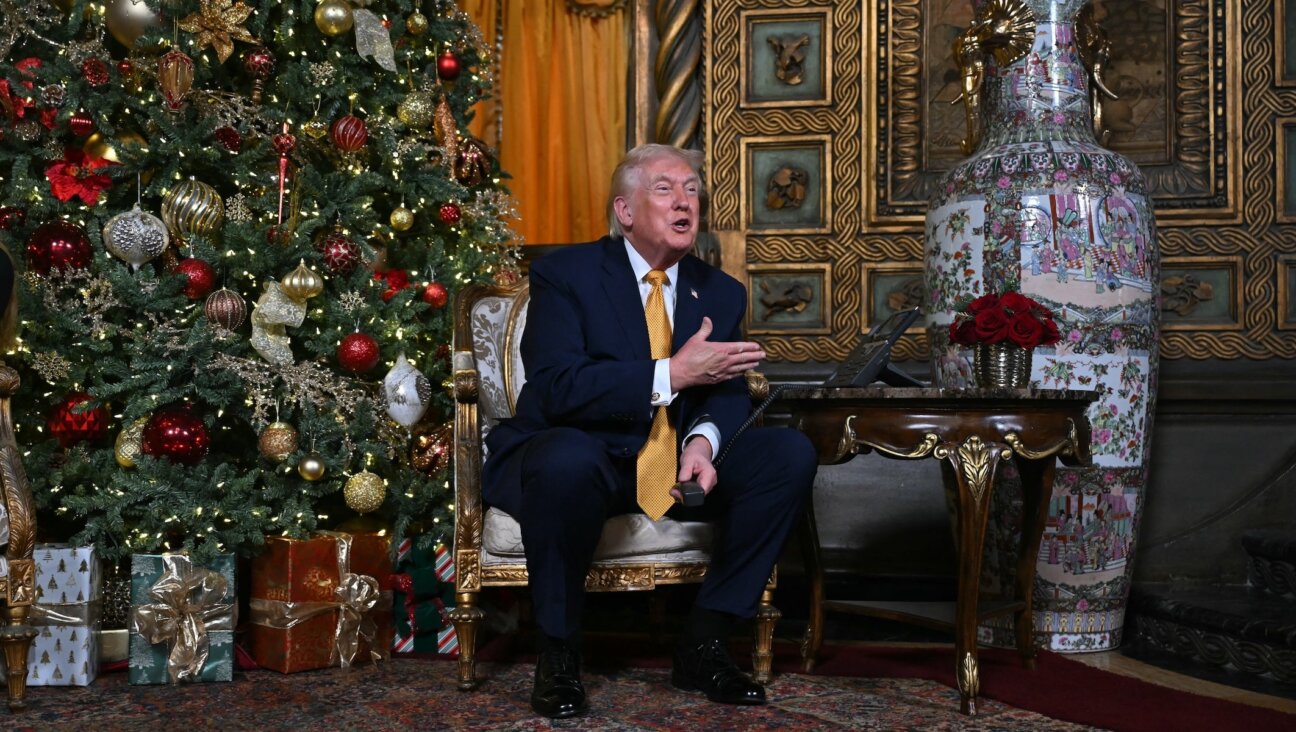Helen Suzman: Jew to the World, Not Always at Home
Johannesburg, South Africa — Helen Suzman, who died January 1 at 91, has been praised worldwide for her long career and courage as an opposition politician in South Africa’s apartheid-era parliament. A daughter of Lithuanian Jewish immigrants, she was lionized by Jewish organizations in the United States and elsewhere as an exemplar of Jewish principles of equality in the face of the racism that oppressed the nonwhite majority of her country.
But at home, Suzman’s Jewish identity was a more vexing, much less embraced dimension of her persona — according to South Africa’s Jewish community and Suzman herself.
In 2007, when the South African Jewish Board of Deputies gave her its seventh annual humanitarian award, which recognizes the work of a Jewish community member, Suzman, typically forthright, raised an eyebrow regarding the belated honor. “It’s about time,” she said bluntly.
Earlier, Suzman told one interviewer, “I thought that the Jewish Board of Deputies should have spoken up more against apartheid.”
The timing of the communal acknowledgment was no simple oversight. During the era of apartheid, which ended only with South Africa’s first free elections in 1994, the SAJBD promoted a policy of political non-involvement as the best course of action to defend South African Jewish interests. For decades, the SAJBD maintained a cordial relationship with the apartheid government. Believing that Jews should not compromise their group interests by opposing the ruling powers, the board’s leaders discouraged criticism of apartheid.
This contrasted strikingly with the stance that American Jewish organizations took, in varying degrees and forms, toward racial segregation in the American South during the 20th century. Civil rights was a cause they embraced, even at the cost of discomfiting Jews living in areas where the Jim Crow laws reigned.
The difference is crucial to understanding Suzman’s relationship to her own community.
While Suzman was critical of the SAJBD’s political quiescence, her thinking in regard to the relationship between her political career and her Jewish identity was, ironically, consistent with the SAJBD’s view.
“I never, ever spoke officially as a Jew!” Suzman said.
The SAJBD denied that Jews had the right as Jews to be politically involved; Jews who opposed apartheid, it said, did so as individuals, not as members of the Jewish community.
In her personal life, Suzman understood Yiddish and was very pro-Israel. But according to Selma Browde, her longtime friend and political colleague, “Helen never felt part of the Johannesburg Jewish community as such.” Suzman was totally uninterested in religion and never attended synagogue. “There were no rabbis who ever had any influence in my life,” she once told an interviewer.
“Her world was a political world, really. The people that she worked with, the way her life was spent was more in a political environment,” Browde said.
Nevertheless, she was often perceived by apartheid supporters as a troublesome Jew and subject to antisemitic vituperation.
Some of her Nationalist parliamentary counterparts saw her, Suzman said, “as just another cheeky little Jewish girl,” Browde told an interviewer. Along with other strong responses that her liberal views elicited from members of the public, Suzman received antisemitic hate mail. In letters addressed, for example, to “The Yiddisher-Bantu Expert,” she wrote to her daughter in London, “my anonymous admirer, Yok… literally bombards me with his charming postcards addressed to der Yiddisher Know-All from Houghton and advising me to go stick my long Jewish nose in the Knesset and leave nice Christian parliaments to nice Christians.”
In fact, for several decades, Suzman courageously fought the inequities of apartheid from within South Africa’s apartheid parliament, paying close attention to their impact on the lives of millions of ordinary South Africans.
While Suzman has been criticized by some for having worked within the apartheid system, her presence in the belly of the beast helped to shine a spotlight on the system’s mechanisms and travesties.
She consciously and consistently used her membership in parliament to raise questions and make statements that government censorship suppressed from surfacing elsewhere. It was in this way, for example, that Nelson Mandela’s electrifying closing statement at the Treason Trial, which sentenced him to life imprisonment, found its way into the press and beyond. The media were barred from reporting on it at the trial. But Suzman read it into the public record during the course of a parliamentary speech, lending Mandela’s oration the cover of her parliamentary immunity.
Through her vision, Suzman earned both hostility among apartheid adherents and recognition internationally. She received nearly 30 honorary doctorates worldwide and many human rights awards. In 2005, an exhibition in her honor was mounted at Cape Town’s South African Jewish Museum.
In 1984 — 23 years before the award from the SAJBD — she received the American Jewish Committee’s American Liberties Medallion.
“Through decades of relentless struggle for civil rights in South Africa, Helen Suzman’s moral code, rooted in such large measure in her Jewish values, summoned her countrymen to throw off the yoke of oppression of the country’s black majority and establish democracy in that land,” said Stanley Bergman, chair of the AJCommittee’s Africa Institute, after Suzman’s death.
In contrast with the SAJBD, Suzman never allowed fear to get in her way. She continued to live in a house surrounded by an insignificant, gateless fence. The abusive phone calls she received in the middle of the night didn’t move her to delist her freely available phone number.
“People phoned her house at all times of the day and night, looking for help,” said Chief Rabbi Warren Goldstein at Suzman’s funeral in Johannesburg’s Jewish cemetery West Park. “She made herself accessible. It was part of her personal mission to help people in the most practical way.” To fend off hostile callers, Suzman kept a shrill whistle next to her bed to blast their eardrums.
While not presenting herself as a representative of the Jews, Suzman self-consciously associated her opposition to apartheid and pursuit of justice with her Jewishness. “For me, for Jews to support the people who were in favor of race discrimination was the ultimate in treachery [of] the values that Jews should hold,” she said in an interview.
“I sometimes had occasion socially,” Suzman said, “when people used to say proudly, ‘I support the National Party,’ to say: ‘You should be ashamed of yourself! How can you? You’re a Jew, and you know what Jews went through with persecution in Russia, with pogroms, unable to move freely, no mobility! How can you support a government which is doing exactly the same thing to the black people?’ This was not a comparison with the Holocaust — I was comparing apartheid to the treatment of Jews in Russia.”
Though Suzman had a total lack of interest in religion, this did not inhibit Goldstein from interpreting her life according to talmudic and biblical precepts.
“She concerned herself with the plight of people following talmudic teaching that to save one life is to save the world,” the rabbi said in his eulogy. “She was the living embodiment of the injunction in Deuteronomy, ‘Justice, justice you shalt pursue.’”
Hoping to honor their mother intimately, Suzman’s daughters declined President Kgalema Motlanthe’s offer of a state funeral. Motlanthe ordered that the South African flag be flown at half-mast. The January 4 funeral was organized by the Johannesburg Chevra Kadisha, the Jewish Burial Society, in accordance with their policy that all, irrespective of social or other status, are treated equally. Images of Suzman’s simple pine coffin, covered by only a black cloth with a Star of David, were Monday’s front-page news after the Sunday funeral.
The small funeral the daughters anticipated was not to be. While not a state funeral, Suzman’s was a significant public event attended by an array of prominent figures, including former president F.W. de Klerk; Democratic Alliance leader Helen Zille; Gwede Mantashe, secretary general of the ruling African National Congress; Winnie Madikizela-Mandela, former wife of Nelson Mandela, and former first lady Zanele Mbeki. Jacob Zuma, president of the African National Congress, was not present.
















